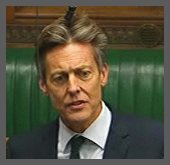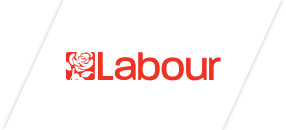 On the Bishops' Report
On the Bishops' Report
Mr Ben Bradshaw (Exeter) (Lab)
8. What discussions she has had with Church leaders on the vote by the General Synod to reject the bishops’ report on human sexuality; and if she will make a statement. [909032]
Dame Caroline Spelman
The majority of members of the General Synod voted to take note of the report of the House of Bishops, but the motion did not pass because a small majority was against it in the House of Clergy. Following that, the Archbishops of Canterbury and York issued a statement committing them to find a way forward.
Mr Bradshaw
Was it not very significant that it was the clergy, who are in the frontline of providing pastoral care to their parishioners, who voted down the bishops’ paper? Is it not increasingly untenable for our Church, which enjoys significant privileges in this country because of its established status, to continue to discriminate against its own members simply because they happen to be gay?
Dame Caroline Spelman
There was a narrow margin in the House of Clergy vote—93 in favour of taking note to 100 against—but a majority is required in all Houses. The way forward, as outlined by the archbishops, is that the pastoral oversight group led by the Bishop of Newcastle, the Rev. Christine Hardman, will now work on how to be as generous as possible to welcome all lesbian, gay, bisexual, transgender and intersex people into the Church and to include them in the work of the pastoral oversight group.
On the fishing industry
Mr Ben Bradshaw (Exeter) (Lab)
The Secretary of State knows that our fish processing industry is more important to our economy than the catching sector, and that it is very dependent on imports. We export more than 80% of what we catch, so is not maintaining tariff-free and other barrier-free access to the single European market more important than sterile arguments about fishing rights that could result in battles or worse?
Andrea Leadsom
I disagree with the right hon. Gentleman. Our fishing communities around the UK provide a vital vibrancy to local communities and the rural economy, so I do not agree with the suggestion that processing is somehow far more important. We will seek the freest possible access to European markets, but when I was in China last year I signed a memorandum of understanding with the Chinese worth £50 million, which included UK seafood. It will be very important for us to be able to find new export markets.
On a posthumous levy on estates
Mr Bradshaw
Will the Minister clarify the Government’s position on the idea of a posthumous levy on estates? The Chancellor ruled that out, yet we read in the newspapers that the Prime Minister slapped him down over that. Are the Government ruling it out or not?
Mr Dunne
I will not pre-empt anything in the Green Paper, and it is not for me to give the right hon. Gentleman any comfort on discussions that might or might not have happened around the Budget.
We recognise that the NHS and social care face huge pressures and that there is more for us as a Government to do. However, we can be confident that we have plans in place both to cope with the pressures that we currently face—winter, A&E pressures and delayed discharges—and to sustain the system for the future. We have a long-term plan in place through the “Five Year Forward View” and the efficiency work being undertaken and rolled out progressively this year. We have given extra funding to both the NHS and social care to support those plans, and we have plans to bring forward a Green Paper on social care. I am pleased that that was broadly welcomed and recognised by hon. Members and distinguished parliamentarians in the debate, and I am grateful for that support.

